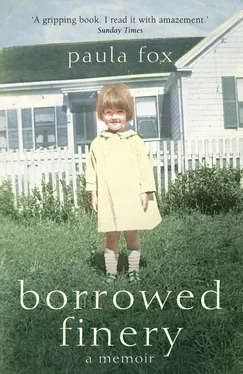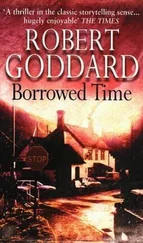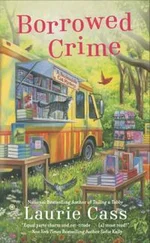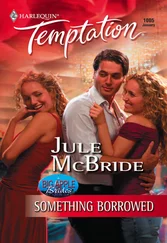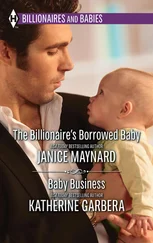
a memoir
For my family, my husband, Martin Greenberg,
and for Sheila Gordon,
who sustained me throughout this work
with her endless patience and affection
“After so long grief, such nativity!”
— The Comedy of Errors
Cover Page
Title Page Borrowed Finery a memoir
Epigraph “After so long grief, such nativity!” — The Comedy of Errors
BORROWED FINERY
Balmville
Hollywood
Long Island
Cuba
New York City
Florida
New Hampshire
New York City
Montréal
New York City
California
Elsie and Linda
About The Author
Praise
Also By Paula Fox
Copyright
About the Publisher
When I was seventeen, I found a job in what was then downtown Los Angeles in a store where dresses were sold for a dollar each. The store survived through its monthly going-out-of-business sales.
Every few days I was required to descend to the basement to bring up fresh stock to replace what had been sold. It was a vast space, barely lit by a weak bulb hanging from a low ceiling, and appeared to extend beyond the boundaries of the store itself. In its damp reaches I sometimes glimpsed a rat shuttling along a pipe, its naked tail like an earthworm.
Against one wall, piled up on roughly carpentered wood shelves, were flimsy boxes of dresses. In front of the opposite wall was an enormous cardboard cutout, at least ten feet high, of Santa Claus, his sled, and his reindeer. I guessed this was displayed in the store upstairs at Christmastime.
One morning when I was sent to the basement for dresses, I noticed drops of sweat on Santa’s brow. Later it occurred to me that the pipe along which I’d seen rats running extended over the cutout, and leaks could account for the appearance of sweat. But at the time I imagined it was because of his outfit. He was as inappropriately dressed for the California climate as I was in my thick blue tweed suit.
I’ve long forgotten who gave the suit to me. I do recall it was a couple of sizes too big and sewn of such grimly durable wool that the jacket and skirt could have stood upright on the floor.
I earned scant pay at a number of jobs I found and lost that year, barely enough for rent and food with nothing to spare for clothes. What I owned in the way of a wardrobe could have fitted into the sort of suitcase now referred to in luggage ads as a “weekender,” a few scraps that would cover me but wouldn’t serve in extremes of weather—and, of course, the blue tweed suit that I wore to work in the Los Angeles dress store day after day.
In that time I understood mouse money but not cat money. Five dollars were real. I could stretch them so they would last. I was bewildered even by the thought of fifty dollars. How much was $50?
The actress ZaSu Pitts, in a publicity still—an advertisement for the movie Greed made in 1923, the year I was born, that showed her crouching half naked among heaps of gold coins, an expression of demented rapacity on her face—embodied my view of American capitalism when I was a young girl. As I grew older, my attitude about money changed. I began to see how complex it was, how some people accumulate it for its own sake, driven by forces as mysterious to me as those that drive termites to build mounds that attain heights of as much as forty feet in certain parts of the world.
At the same time that I began to acquire material things, my appetite for them was aroused. Yet in my mind’s eye, the image of ZaSu Pitts holding out handfuls of gold coins, not offering them but gloating over her possession of them, persists, an image both condemnatory and triumphant.
The Reverend Elwood Amos Corning, the Congregational minister who took care of me in my infancy and earliest years and whom I called Uncle Elwood, always saw to it that I didn’t look down and out. Twice a year, in the spring and fall, he bought a few things for me to wear, spending what he could from the yearly salary paid to him by his church. Other clothes came my way donated by the mothers in his congregation whose own children had outgrown them. They were mended, washed, and ironed before they were handed on.
In early April, before my fifth birthday, my father mailed Uncle Elwood two five-dollar bills and a written note. I can see him reading the note as he holds it and the bills in one hand, while with the index finger of the other he presses the bridge of his eyeglasses against his nose because he has broken the sidepiece. This particularity of memory can be partly attributed to the rarity of my father’s notes—not to mention enclosures of money—or else to the new dress that part of the ten dollars paid for. Or so I imagine.
The next morning Uncle Elwood drove me in his old Packard from the Victorian house on the hill in Balmville, New York, where we lived, to Newburgh, a valley town half an hour distant and a dozen miles north of the Storm King promontory, which sinks into the Hudson River like an elephant’s brow.
We parked on Water Street in front of a barbershop where I was taken at intervals to have my hair cut. One morning after we had left the shop, and because I was lost in reverie, staring down at the sidewalk but not seeing it, I reached up to take Uncle Elwood’s hand and walked nearly a block before I realized I was holding the hand of a stranger. I let go and turned around and saw that everyone who was on the street was waiting to see how far I would go and what I would do when I looked up. Watching were both barbers from their shop doorway, Uncle Elwood with his hands clasped in front of him, three or four people on their way somewhere, and the stranger whose hand I had been holding. They were all smiling in anticipation of my surprise. For a moment the street was transformed into a familiar room in a beloved house. Still, I was faintly alarmed and ran back to Uncle Elwood.
Our destination that day was Schoonmaker’s department store, next to the barbershop. When we emerged back on the sidewalk, he was carrying a box that contained a white dotted-swiss dress. It had a Peter Pan collar and fell straight to its hem from a smocked yoke.
Uncle Elwood had written a poem for me to recite at the Easter service in the church where he preached. Now I would have something new to wear, something in which I could stand before the congregation and speak his words. I loved him, and I loved the dotted-swiss dress.
Years later, when I read through the few letters and notes my father had written to Uncle Elwood, and which he had saved, I realized how Daddy had played the coquette in his apologies for his remissness in supporting me. His excuses were made with a kind of fraudulent heartiness, as though he were boasting, not confessing. His handwriting, though, was beautiful, an orderly flight of birds across the yellowing pages.
Uncle Elwood made parish visits most Sundays in Washingtonville, at that time still small enough to be called a village, in Orange County, New York, seventeen miles from Balmville, where most members of his congregation lived. The church where he preached was in Blooming Grove, a hamlet a mile or so west of Washingtonville, on a high ridge above a narrow country lane, and so towering—it appeared to me—it could have been a massive white ship anchored there, except for its steeple, which rose toward the heavens like prayerful hands, palms pressed together.
Читать дальше
